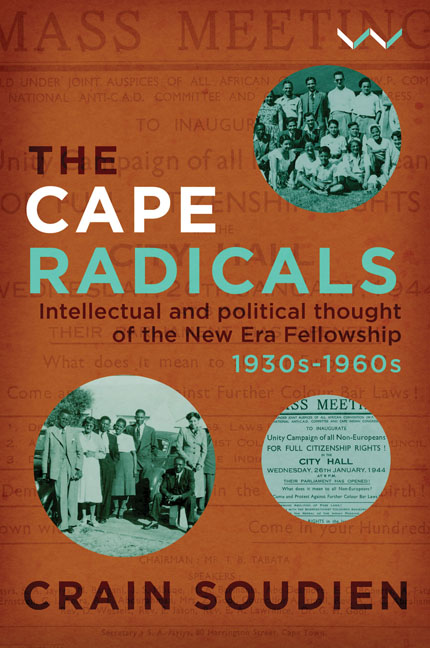Book contents
- Frontmatter
- Contents
- Acknowledgements
- Acronyms and Abbreviations
- Timeline
- Introduction
- 1 A Battle of Ideas
- 2 Planters of the Seed
- 3 ‘Anything under the Sun’: The Formation of the New Era Fellowship
- 4 ‘Honest, Sincere and Fearless’, 1937–1940
- 5 The Road to Emancipation, 1940–1953
- 6 A Cauldron of Conflict
- 7 Legacy
- Notes
- List of Illustrations
- Bibliography
- Index
3 - ‘Anything under the Sun’: The Formation of the New Era Fellowship
Published online by Cambridge University Press: 29 October 2019
- Frontmatter
- Contents
- Acknowledgements
- Acronyms and Abbreviations
- Timeline
- Introduction
- 1 A Battle of Ideas
- 2 Planters of the Seed
- 3 ‘Anything under the Sun’: The Formation of the New Era Fellowship
- 4 ‘Honest, Sincere and Fearless’, 1937–1940
- 5 The Road to Emancipation, 1940–1953
- 6 A Cauldron of Conflict
- 7 Legacy
- Notes
- List of Illustrations
- Bibliography
- Index
Summary
The precise origins of the New Era Fellowship (NEF) are, to all intents and purposes, lost in time. The records of the inaugural meeting that gave rise to the organisation are not available. If there were minutes taken at the meeting, unfortunately these have not been located. Who was present, what they said and what they intended is not known to us. There are, however, a few documents and oral histories that give one a sense of the beginning years. These can be tracked, largely, through announcements and reports that appeared in the Cape Standard; we also have the personal testimonies of people such as Dick Dudley and Alie Fataar.
According to Allison Drew, the NEF was ‘a radical discussion and debating society which was formed by Goolam Gool in 1937 which ran until the late 1960s. It met at the Stakesby-Lewis Hostel and in the Fidelity Hall on the edge of District Six in Cape Town.’ Dudley, who was not present personally at the establishment of the NEF, but who would have arrived on the scene shortly afterwards, described the NEF's origins as being in the National Liberation League (NLL): ‘The Goolam Gool, Tabata and Kies branch [of the NLL] started the New Era Fellowship in 1937.’ Baruch Hirson puts it more directly, writing that the NEF ‘was formed in 1937 by Gool’, who ‘was a member of the All-African Convention (AAC), and was associated together with other members or sympathisers of the Workers Party of South Africa (WPSA), with the New Era Fellowship.’ He describes it as comprising a ‘nucleus of students and members of existing Cape organisations’. Names mentioned as early members in various sources include Sidney George Maurice, a teacher and, at one time, principal of Trafalgar High School, Ben Kies, Hawa Ahmed (the pseudonym of Halima Gool), Willem van Schoor and Solly Edross. By 1940, when Dudley first came to NEF lectures, Gool was the chairman, Kies his vice and Hawa Ahmed the secretary. Yunus Omar has an insightful description from Fataar of the role that Goolam Gool played:
I learnt from him … in the very instance because he was the kind of person who would find the individual, the young person that he wants to work with, and I happened to be one of them.
- Type
- Chapter
- Information
- Cape RadicalsIntellectual and Political Thought of the New Era Fellowship, 1930s to 1960s, pp. 77 - 92Publisher: Wits University PressPrint publication year: 2019



